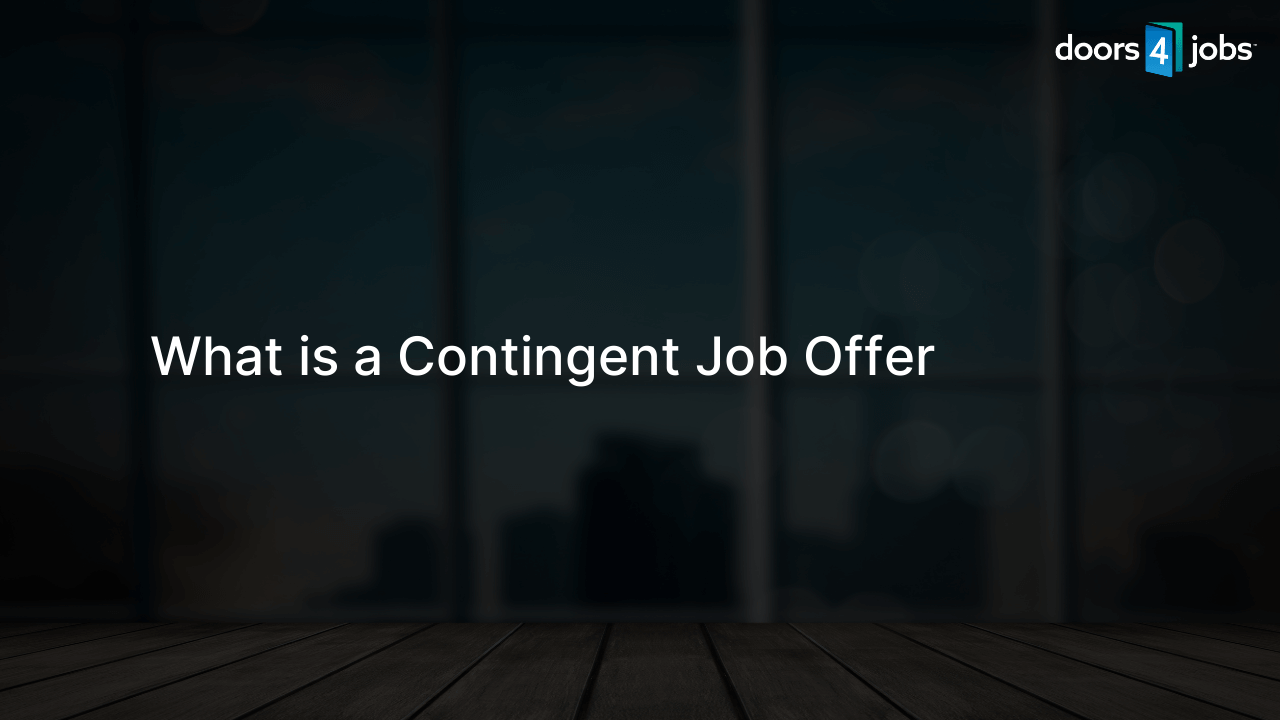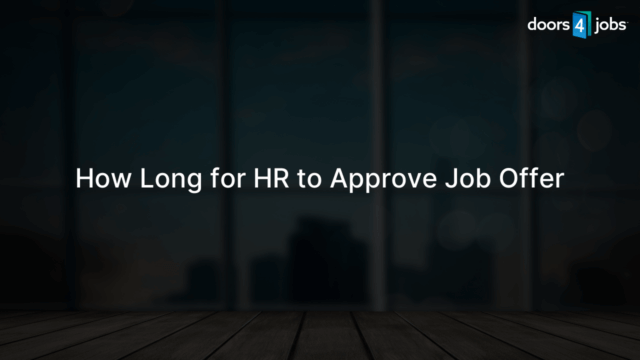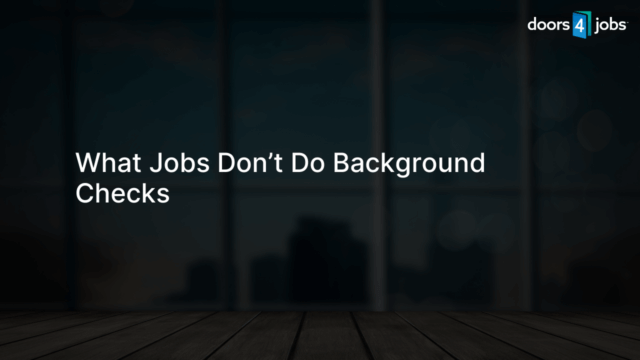A contingent job offer is a conditional employment offer that depends on the candidate fulfilling specific requirements or prerequisites, such as passing a background check, drug testing, or meeting certain educational or professional qualifications. Once the conditions are met, the job offer becomes binding for both the employer and the candidate.
Understanding Contingent Job Offers
A contingent job offer is an employment proposal extended by an employer to a candidate based on the completion of specific conditions or requirements. This ensures the candidate is a suitable fit for the organization as the job offer depends on satisfying these prerequisites.
Common Requirements for Contingent Job Offers
Various prerequisites can be associated with a contingent job offer, such as:
- Background checks: Employers may conduct a background investigation to verify the candidate’s employment history, criminal record, academic qualifications, and more.
- Drug testing: Many companies require candidates to pass a drug test as part of their employment process.
- Reference checks: Employers may seek feedback from a candidate’s previous colleagues, supervisors, or professional connections to verify their professional reputation and performance.
- Qualifications and certifications: A job offer may be contingent upon obtaining or providing evidence of certain academic degrees, professional certifications, or licenses.
Converting Contingent Offers to Binding Contracts
Once the candidate fulfills all conditions, the contingent job offer becomes binding, and the candidate is legally obligated to the terms and conditions of the employment. The employer and candidate then sign the final employment contract, outlining responsibilities, compensation, and benefits.
What if Conditions Aren’t Met?
If the candidate fails to meet the conditions laid out in the contingent job offer, the employer has the right to withdraw the offer or negotiate alternative terms. In some cases, the candidate may request additional time to meet the requirements or provide a satisfactory explanation for any discrepancies.
Navigating Contingent Job Offers
It is essential for candidates to understand the implications of a contingent job offer and be prepared to fulfill the requirements. Consider seeking professional advice or legal guidance if necessary, and maintain clear communication with the employer throughout the process.
Handling Multiple Contingent Job Offers
If a candidate receives multiple contingent job offers, it is crucial to carefully evaluate each offer before making a decision. Consider factors such as job responsibilities, company culture, growth opportunities, compensation, and benefits. Be transparent about the situation with all employers and request additional time if needed to fulfill the contingencies of each offer before making a final decision.
Managing Time Frames for Contingent Offers
Contingent job offers often include a specific time frame in which the candidate must meet the outlined conditions. It is important to understand these deadlines and work proactively to provide the necessary documentation and complete any required testing or checks. Communicate with the employer promptly and professionally if extra time is needed to fulfill the contingencies.
Candidate Rights and Contingent Offers
Although employers have the right to establish contingencies, candidates should be aware of their rights in the job application process. For instance, if a candidate believes they have been discriminated against based on factors such as age, race, or disability, they may have grounds for a legal claim. Familiarize yourself with employment laws and consult a legal professional if necessary to protect your rights.
Negotiating Contingent Job Offers
Though contingent job offers often come with fixed conditions, candidates may still have room to negotiate some aspects of the employment terms such as salary, benefits, and start date. Prepare a list of priorities and be open to discussing your preferences and concerns with the employer. By approaching the negotiation process professionally and respectfully, candidates can work towards reaching a mutually beneficial agreement with their future employer.
Frequently Asked Questions
In this section, we address common questions related to contingent job offers, providing greater insight into the topic and helping candidates with their employment journey.
What is the difference between a contingent job offer and a final job offer?
A contingent job offer sets specific conditions that a candidate must meet before the offer becomes binding, such as passing a background check or obtaining a particular certification. A final job offer is a legally binding employment agreement that no longer has any such conditions, meaning the candidate has successfully met all contingencies, and the hiring process is complete.
Can an employer revoke a contingent job offer after making it?
Yes, an employer can revoke a contingent job offer if the candidate fails to satisfy the outlined conditions or prerequisites within the specified time frame. Employers may also consider renegotiating the offer or extending the deadline for candidates who cannot meet the contingencies promptly.
Is it safe to quit my current job after receiving a contingent job offer?
It is generally recommended to wait until you receive a final job offer, which indicates that all contingencies have been met, before resigning from your current position. Because a contingent offer remains conditional, there is a potential risk of the offer being withdrawn if you do not satisfy the requirements in the specified period.
Can I negotiate the conditions of a contingent job offer?
While the conditions of a contingent job offer are usually fixed, you may have some room to negotiate specific terms of employment, such as salary, benefits, or start date. It is essential to approach these negotiations professionally and respectfully while expressing your concerns or preferences with the employer.
How long does it take to fulfill contingencies and receive a final job offer?
The time it takes to fulfill contingencies and receive a final job offer can vary depending on the nature of the requirements and the employer’s hiring process. Factors such as background checks, drug testing, and reference verification can take anywhere from a few days to several weeks. Applicants should be proactive in providing the required documentation and completing any necessary steps to expedite the process.











